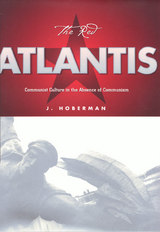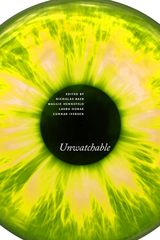3 books about Hoberman, J.

The Magic Hour
Film At Fin De Siecle
J. Hoberman
Temple University Press, 2003
The "magic hour" is the name film-makers give the pre-dusk late afternoon, when anything photographed can be bathed in a melancholy golden light. A similar mood characterized the movies of the 1990s, occasioned by cinema's 1995-96 centennial and the waning of the twentieth century, as well as the decline of cinephilia and the seemingly universal triumph of Hollywood.The Magic Hour: Film at Fin de Siècle anthologizes J. Hoberman's movie reviews, cultural criticism, and political essays, published in The Village Voice, Artforum, and elsewhere during the period bracketed by the fall of the Berlin Wall and the collapse of the World Trade Towers. Demonstrating Hoberman's range as a critic, this collection reflects on the influence of Fritz Lang, as well as Quentin Tarantino, on the end of the Western and representation of the Gulf War, the Hong Kong neo-wave and the "boomerography" manifest in the cycle of movies inspired by the reign of Bill Clinton. As in his previous anthology, Vulgar Modernism: Writings on Movies and Other Media (nominated for a National Book Critics Circle Award), Hoberman's overriding interest is the intersection of popular culture and political power at the point where the history of film merges with what Jean-Luc Godard called "the film of history."
[more]

The Red Atlantis
J. Hoberman
Temple University Press, 2000
For most of the twentieth century, American and European intellectual life was defined by its fascination with a particular utopian vision. Both the artistic and political vanguards were spellbound by the Communist promise of a new human era -- so much so that its political terrors were rationalized as a form of applied evolution and its collapse hailed as the end of history.
The Red Atlantis argues that Communism produced a complex culture with a dialectical relation to both modernism and itself. Offering examples ranging from the Stalinist show trial to Franz Kafka's posthumous career as a dissident writer and the work of filmmakers, painters, and writers, which can be understood only as criticism of existing socialism made from within, The Red Atlantis suggests that Communism was an aesthetic project -- perhaps the aesthetic project of the twentieth century.
Considering the meaning of Communist culture in its absence, these essays sift through the wrecking age of Marxist fantasy to exhibit exhumed fossils (Socialist Realist canvases), vanished monuments (the Berlin Wall), imaginary territories (the Jewish state, Birobidzhan), and ideological memories (the Crime of the Century). The Cold War notwithstanding, the greatest of these exotic artifacts and obsolete scenarios is the lost Communist utopia, which, in fact, never existed.
The Red Atlantis argues that Communism produced a complex culture with a dialectical relation to both modernism and itself. Offering examples ranging from the Stalinist show trial to Franz Kafka's posthumous career as a dissident writer and the work of filmmakers, painters, and writers, which can be understood only as criticism of existing socialism made from within, The Red Atlantis suggests that Communism was an aesthetic project -- perhaps the aesthetic project of the twentieth century.
Considering the meaning of Communist culture in its absence, these essays sift through the wrecking age of Marxist fantasy to exhibit exhumed fossils (Socialist Realist canvases), vanished monuments (the Berlin Wall), imaginary territories (the Jewish state, Birobidzhan), and ideological memories (the Crime of the Century). The Cold War notwithstanding, the greatest of these exotic artifacts and obsolete scenarios is the lost Communist utopia, which, in fact, never existed.
[more]

Unwatchable
Baer, Nicholas
Rutgers University Press, 2019
We all have images that we find unwatchable, whether for ethical, political, or sensory and affective reasons. From news coverage of terror attacks to viral videos of police brutality, and from graphic horror films to transgressive artworks, many of the images in our media culture might strike us as unsuitable for viewing. Yet what does it mean to proclaim something “unwatchable”: disturbing, revolting, poor, tedious, or literally inaccessible?
With over 50 original essays by leading scholars, artists, critics, and curators, this is the first book to trace the “unwatchable” across our contemporary media environment, in which viewers encounter difficult content on various screens and platforms. Appealing to a broad academic and general readership, the volume offers multidisciplinary approaches to the vast array of troubling images that circulate in global visual culture.
With over 50 original essays by leading scholars, artists, critics, and curators, this is the first book to trace the “unwatchable” across our contemporary media environment, in which viewers encounter difficult content on various screens and platforms. Appealing to a broad academic and general readership, the volume offers multidisciplinary approaches to the vast array of troubling images that circulate in global visual culture.
[more]
READERS
Browse our collection.
PUBLISHERS
See BiblioVault's publisher services.
STUDENT SERVICES
Files for college accessibility offices.
UChicago Accessibility Resources
home | accessibility | search | about | contact us
BiblioVault ® 2001 - 2024
The University of Chicago Press









